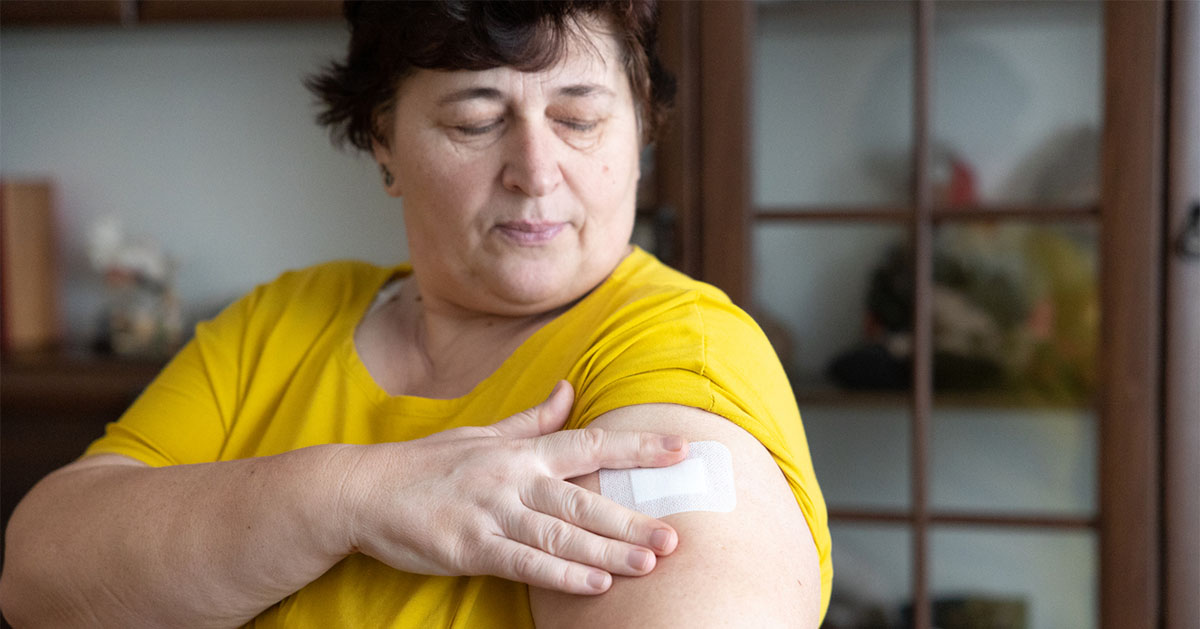Stress and diabetes: a bidirectional relationship
Throughout the research literature, it is clear that stress and diabetes are closely linked and continually impact upon each other.
• The role of stress is closely linked to the presence of metabolic syndrome.1 Potential underlying mechanisms behind this include glucocorticoid or insulin resistance that can be triggered following repeated cycles of activated allostasis (e.g. fight-or-flight) in response to stressful events; increased BMI and waist circumference in stressed groups;2 and a higher incidence of unhealthy lifestyle behaviours in the chronically stressed.1
• People with diabetes often experience stress that is specifically related to the experience of living with diabetes. This is termed diabetes distress. High diabetes distress predicts worse diabetes management, which in turn predicts higher HbA1c levels, higher levels of diabetes distress and increased incidence of depression.3
• High stress negatively impacts on many other conditions associated with type 2 diabetes, including depression, dementia, cardiovascular disease and hypertension, potentially via oxidative stress and inflammation pathways.4
Sources of stress for people living with type 2 diabetes
• Life changes. Being diagnosed with type 2 diabetes often comes with a need to carry out significant life changes in order to lose weight. People may be asked to radically change their diets, cease smoking, increase physical exercise and significantly reduce, or give up, their alcohol intake. This change can cause significant stress for the person with diabetes, both in terms of being asked to take on new and often challenging ways of living, and of needing to reduce or cease previously enjoyed activities (e.g. regularly going to the pub) that could, in turn, increase feelings of social isolation and resentment towards diabetes.
• Care task burdens. The added inconvenience of needing to attend regular healthcare appointments and manage medications can add significant stress to anyone with a long-term condition. Insulin is a particularly burdensome drug to administer and manage, especially given the risk of hypoglycaemia.
• Shame and stigma. The links between type 2 diabetes and obesity, coupled with narratives that type 2 diabetes is preventable and “reversible”, can often lead to people who live with type 2 diabetes experiencing significant levels of shame and/or stigma from others and themselves. Shame is a particularly toxic emotion to experience, and often creates a deep sense of distress coupled with unhelpful coping strategies, such as self-imposed isolation or binge-eating, that exacerbate distress in the longer term.
• Pre-existing and external stresses. Of course, stresses exist outside of diabetes, and many people will also experience negative impacts from current (e.g. employment, housing or relationship) and historical stressors (e.g. adverse childhood events). Wider societal stresses, such as the ongoing effects of the COVID-19 pandemic and the cost-of-living crisis, will also inevitably add to the stresses of people living with type 2 diabetes, particularly in situations where people feel that they have to choose between prioritising their health or their financial security.
Vulnerable population: people with young-onset type 2 diabetes
Young-onset type 2 diabetes is increasing significantly across the UK, which is particularly concerning given the fast level of beta-cell function reduction and extremely high level of complications observed in this population.5 Individuals with young-onset type 2 diabetes may have grown up with childhood obesity and have experienced significant discrimination and bullying as a result. Further, many transition and young adult diabetes services are designed to cater for the needs for young adults with type 1 diabetes, leaving people with young-onset type 2 diabetes feeling further alienated and excluded, and putting them at much higher risk of experiencing psychological distress and potentially dropping out of care services.
Stress reduction: what works?
• Peer support. Engaging with peer support has proven beneficial effects on self-efficacy and diabetes management,6 which, in turn, can reduce stress. Diabetes UK runs a range of peer-support programmes and groups across the UK, in person and online.
• Exercise. Regular exercise in outdoor spaces is well known to have strong effects on psychological well-being, as well as having clear health benefits. Encouraging people with diabetes to engage in as little as 10 minutes of outdoor exercise per day is likely to produce physical and psychological benefits.
• Education. Education programmes, such as X-PERT and DESMOND, can help to increase self-efficacy and reduce feelings of anxiety, as well as dispelling unhelpful myths or misperceptions about diabetes. Programmes are often accessible via self-referral in the community, and can be delivered in person or online. Diabetes UK hosts the Learning Zone on its website, which includes a dedicated Stress Manager tool and multiple sections on emotional well-being.
• Psychological therapies. The vast majority of studies evaluating the outcomes of psychological therapy interventions for people living with type 2 diabetes report positive results, both for diabetes management and psychological outcomes. Third-wave therapies that incorporate elements of mindfulness (e.g. acceptance and commitment therapy [ACT], compassion-focused therapy [CFT] and mindfulness-based stress reduction [MBSR]) are particularly popular approaches in UK clinical health psychology settings, and show promising outcomes.7 Therapy groups and courses are often available in the community, and there is a large range of high-quality guided self-help resources that also achieve good results.
• Third-sector and social prescribing. These organisations can play a key role in supporting people with type 2 diabetes to access the support they need to reduce their stress, whether it be through access to projects designed to increase emotional well-being (e.g. the Men’s Sheds groups), or in the form of more practical support (e.g. financial assistance).
Tools you can use today
1. The catch-all signposting website. The NHS Better Health website provides a useful and comprehensive range of information, apps and resources that cover a wide range of health promotion topics, including smoking cessation, weight loss and physical activity support. It also has a dedicated section for psychological heath (Every Mind Matters) that includes links to free mindfulness resources and dedicated sections on managing long-term conditions.
2. The 5-minute CPD read that could change your practice. The language that healthcare professionals use when communicating with people with diabetes has been highlighted as being consistently problematic and likely to be contributing to further stress and worse outcomes.2 Language Matters, published by NHS England, provides guidance for staff on consultation and communication skills that can profoundly benefit people with diabetes who attend your service. See also How to find the ideal words in consultations.
3. The lunch-break-friendly learning zone. Diabetes UK has created a range of free online CPD courses for healthcare professionals that includes an emotional well-being module.






Increased risk of new-onset heart failure in over-65s suggests caution is required before prescribing pregabalin for painful diabetic neuropathy.
14 Aug 2025